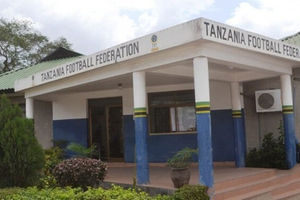
Tanzanian referee Ahmed Arajiga.
In the financial records of football clubs across Europe, players are listed as assets, and their services are valued in the same way as physical property. As with any asset, their worth depreciates over time — especially as contracts draw to a close — and the profit or loss attached to that asset becomes evident at the end of each season or upon expiry of their deal.
This business-minded view of football is one of the main reasons European clubs strongly resisted the proposed expansion of the FIFA Club World Cup. Their argument? More matches pose increased risks to player health, which in turn jeopardises performance, asset value, and the bottom line. Injured or fatigued players complicate financial reporting and undercut the competitive edge.
But unlike machines or soda bottles that come off an assembly line identical in taste and packaging, human beings cannot be mass-produced. If you put 30 people through the same class or training course, they emerge with varying levels of understanding and performance. Some will fail, some will scrape through, and a few will shine. Human capability does not follow a predictable curve — and the same holds true in football.
Take the case of Lamine Yamal. He wasn’t alone in his youth academy, but his blend of talent, enhanced by superior training and a willingness to learn, has catapulted him ahead of his peers. The same can be said of Tanzanian referee Ahmed Arajiga.
In recent months, Arajiga has risen through the ranks — from a relatively unknown official to one regularly trusted by the Confederation of African Football (CAF) for high-profile assignments. In a refereeing environment too often marred by allegations of bias, inconsistency, and undue influence from major clubs, Arajiga has become a refreshing exception.
He has set himself apart by exhibiting integrity and professionalism — values too rarely associated with our officiating fraternity. His willingness to make difficult decisions, regardless of club stature or public sentiment, has earned him respect in a system that often appears designed to discourage such independence.
Indeed, the term "human error," often employed as a blanket excuse for blunders, is used meaningfully in Arajiga’s case. When he makes a mistake, it is usually accepted as genuine — not as part of a pattern of convenient errors that favour certain teams. Yet, it is disheartening to hear questions such as, "Who trained Arajiga?" — as if excellence among our referees is so rare that it must be interrogated.
Arajiga himself put it best: "Better to be insulted for doing the right thing than praised for wrongdoing." That, perhaps, is his clearest philosophical statement — one that should serve as a standard for all officials entrusted with protecting the integrity of our national game.
But how many of his colleagues are paying attention? Do they not see how consistently doing the right thing is building Arajiga’s reputation? Or are some so compromised — caught up in off-field deals and pressures — that integrity is no longer a viable career path? Once club leaders, federation officials, or league board members become part of this ecosystem of manipulation, the result is a referee corps that makes the same mistakes repeatedly, emboldened by impunity.
And while we must accept that human performance varies, we cannot afford to normalise mediocrity. Tanzanian football urgently needs a new crop of referees who can deliver at least half of what Arajiga does. Otherwise, the sport risks being consumed by controversy, frustration, and a slow but certain collapse.
We must also admit that the experiment of fast-tracking young referees into top-tier matches to “build legacy” has failed. Instead of boosting the game, it has prioritised personal ambition over institutional credibility. True legacy comes from excellence — and that is what Arajiga is delivering.
The authorities must respond accordingly. Weekly post-match arguments over refereeing errors and bias claims are eroding the credibility of the league. The Referees’ Committee should urgently roll out an intensive programme to raise the bar. If countries like Eritrea, Somalia, Gambia, and Comoros can field top-level officials, Tanzania has no excuse.
Just as importantly, there must be a serious audit of this season’s officiating blunders. Many of these mistakes aren’t accidental — they are driven by greed, or pressure, or both. And the usual slap-on-the-wrist suspensions — two or three months off — have become routine. For some referees, these “punishments” are welcomed as a break.
This attitude is the very opposite of Arajiga’s. His type of referee is ready to be criticised for making fair decisions — a principle that could save our league. Without more officials like him, our football will continue to struggle for credibility.
It is time for a new standard, one grounded in professionalism, fairness, and courage. Arajiga has shown that it’s possible. Now the system must produce more like him — or risk losing what’s left of the beautiful game in Tanzania.

